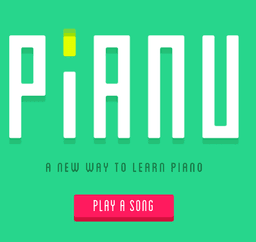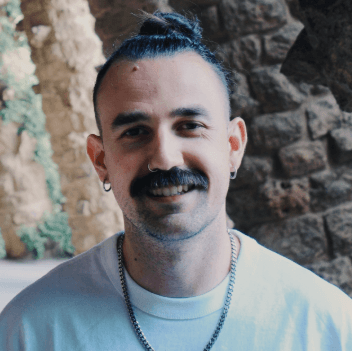From Musician to SaaS Sale: How Pianu Built and Sold a $75,000 Piano-Learning Platform

Business Description
Table of Contents
Navigate through the case study sections
Executive Summary
Case Study Content
Pianu: Turning Musical Passion Into a $75,000 SaaS Exit
Some projects just feel ahead of their time, but succeed because they nail the basics, lean into clever technology, and actually solve a thing real people want. Pianu, built by Peter Gerges, a seasoned professional musician, hit digital entrepreneurship with the simple but powerful idea: Make learning piano accessible and stickier by merging popular music, gamification, and smart web tools. The result? Tens of thousands of active users, sticky recurring revenue, and a $75,000 acquisition on Flippa. Here’s exactly how Pianu did it, and what others can borrow from their playbook.
The Genesis: From Professional Musician to Product
Peter Gerges knew firsthand that most piano teaching materials are either stuffy, poorly designed, or just not motivating for modern beginners. So he built Pianu as a web-based SaaS. Users could play real songs they loved and receive instant feedback, with game-like mechanics keeping them coming back. Tutorials covered over 300 songs, and the interface let anyone start learning with nothing but a web browser and a MIDI keyboard (or just their computer keyboard).
Unique Selling Point: Gamified, Accessible, and SEO-Friendly
Most online music lessons ask for a lot of commitment upfront and struggle with retention. Pianu’s smart move was to use casual gaming techniques, badges, levels, immediate progress tracking, which made practice feel less boring and more bite-sized. They then set up a smart blog and content strategy, targeting high-intent keywords around learning piano, which kept organic traffic flowing and engaged.
Growth Trajectory: Metrics That Mattered
- Over 45,000 active subscribers at the time of sale.
- Average 100+ new free users daily.
- Conversion rate north of 5% into $8/month paid plan.
- Generating about $3,000/month net profit.
- 277,000+ monthly page views from 52,000+ unique monthly visitors.
Pianu’s numbers prove that the basics, consistent new signups, loyal paying customers, and meaningful user engagement, were consistently met, all without big venture investment or a huge team. Peter handled product, content, and initial customer support solo, relying on a robust infrastructure to automate signups, payments, and routine tasks.
Revenue Streams: Why It Worked
- Recurring SaaS subscriptions: at $8/mo, high retention.
- Affiliate sales: partnership with MusicNotes.com for sheet music referrals.
- Product promos: select sponsorships for piano hardware and related gear.
This diversified revenue approach meant even as users churned or usage dipped, other sources kept cash flowing.
The Sale: Flippa and the Exit Multiple
With steady profit and recurring income, Pianu caught attention on Flippa, a busy marketplace for digital business sales. Its listing racked up over 6,600 views, 286 watchers, and more than 50 direct discussions. Eventually it sold for $75,000, just over a 2X multiple on annual profit. For a solo founder with modest infrastructure, this was a strong return. All the while, ownership meant Peter could focus back on his music while monetizing years of technical and educational labor.
Marketing Gameplan: SEO and Community
Pianu didn’t buy users. They grew through content marketing: a dedicated music blog, optimizing for how-to piano queries, and building out hundreds of indexed song tutorials. The model put Pianu in front of motivated learners, not tire-kickers. Community building also mattered; having active users unlock badges or share their progress online created free word of mouth exposure.
Product Design: No Frills, Pure Function
Pianu’s web app focused relentlessly on usability. There was no mobile app at launch, but the responsive design worked everywhere. Integration with PayPal/Stripe for payments meant simple onboarding, and user accounts were easy to manage. Feedback was quick through in-browser MIDI support, and regular releases improved lag and fixed bugs, often from direct user suggestions.
Lessons for Other Founders
- Solve a real problem, make it easier and more enjoyable than the status quo.
- Use gamification to hook end users, especially in education markets.
- Lean into SEO/content if you can’t outspend competitors.
- Diversify revenue: subscriptions, affiliates, product ads.
- Prepare key business metrics and processes early to make selling later smoother.
- Even small solo-run products, if sticky and profitable, can be real acquisition targets.
The Pianu journey shows a template that others, especially niche creators or solo digital founders, might actually copy. Turns out, building a 'boring', recurring customer machine in an old-school vertical can still be lucrative.
Final Thoughts: Why Pianu’s Model Succeeded
You don’t need millions of customers or a giant team. Remarkable things can happen by focusing on a sharp idea, automating operations, and providing real value. Sell when growth flattens or passion shifts, and don’t ignore unsexy industries, music education is still a huge global need.
Key Takeaways
- 1Pianu used gamification and accessible technology to make learning piano engaging for everyone.
- 2Focusing on SEO-driven content brought consistent streams of motivated traffic and organic growth.
- 3Relying on subscription revenue, backed by affiliate sales and product partnerships, created stable monthly profit.
- 4Solo founder Peter Gerges managed growth and operations with automation, keeping overheads minimal.
- 5A clear, sticky user experience and steady key metrics made the platform highly attractive to buyers.
- 6Selling via Flippa proved that profitable niche SaaS can command meaningful exit multiples for solo operators.
Key Facts
Tools & Technologies Used
Premium Content Locked
Subscribe to access the tools and technologies used in this case study.
Unlock NowHow to Replicate This Success
Premium Content Locked
Subscribe to access the step-by-step replication guide for this case study.
Unlock NowInterested in Being Featured?
Share your success story with our community of entrepreneurs.
Explore More Case Studies
Discover other inspiring business success stories

How Two Cornell Students Built, Scaled, and Sold TripKit - A Virtual Assistant Startup
TripKit started as a Cornell University class project by Grace McBride and Sarah Peters, addressing workflow pain points...
TripKit

Bootstrapping a $6,500 MRR SaaS Portfolio: Jim Raptis’s Journey
Jim Raptis turned away from the push of VC funding and built a portfolio of three bootstrapped SaaS products, MagicPatte...
Jim Raptis Portfolio

How Iman Gadzhi Built an 8-Figure Empire Through Personal Branding
Iman Gadzhi turned personal challenges into a powerful social media presence that seeded a profitable agency, evolved in...
IAG Media